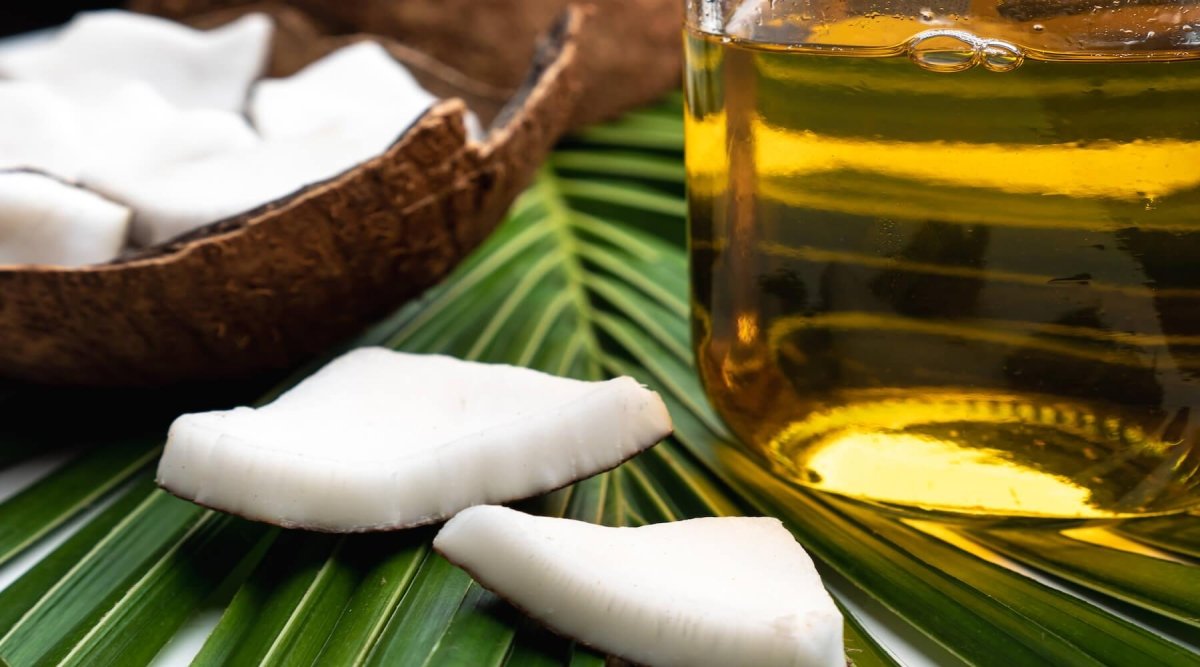
- Coconut oil offers multiple skin benefits, including slight SPF protection ranging from 4-7. However, this is minimal compared to broad-spectrum sunscreens.
- While not suitable as a primary sunblock for extended sun exposure, coconut oil can be integrated into sun care routines as an after-sun soother or in sunscreen formulations.
- For comprehensive sun protection during outdoor activities, rely on dedicated sunscreens, using coconut oil as a supplementary skincare treat.
In today's age of natural and organic beauty trends, coconut oil has emerged as a superstar. Its multifaceted uses range from a hair conditioner to a cooking ingredient. With the spotlight firmly on holistic approaches to skincare, there's growing interest in understanding whether coconut oil can double up as a sunscreen. Let's take a detailed journey through the world of coconut oil and its potential as a sun protector.
Understanding Coconut Oil's Skin Benefits
Originating from the mature flesh of coconuts, coconut oil has deep roots in various cultural beauty rituals. Its abundant fatty acids are renowned for deeply moisturizing the skin, giving it a radiant and youthful appearance. Apart from its moisturizing qualities, coconut oil is packed with antioxidants, which combat free radicals – notorious for accelerating the aging process.
A Glimpse into the SPF Properties of Coconut Oil
There's been some buzz about coconut oil having sun protective properties. Research does indicate that virgin coconut oil can offer an SPF range between 4 to 7. At first glance, this may appear as a natural solution to sun protection, but it's vital to see this number in the broader context of sun care. An SPF between 4 to 7 is quite minimal, especially when you compare it to sunscreens that have SPF values of 30 or even 50.
Why Coconut Oil Isn't Enough on Its Own
SPF 4-7 will provide some defense against UVB rays, but this is a far cry from the comprehensive protection offered by broad-spectrum sunscreens. Remember, SPF 30 blocks about 97% of UVB rays. Coconut oil's UVA protection, which is essential for preventing skin aging and deeper skin damage, isn't robust.
Another factor to consider is the consistency of coconut oil. Its texture can change with the temperature. Imagine relying on coconut oil on a sweltering day; it might just liquify and drip off, leaving the skin vulnerable.
Integrating Coconut Oil in Sun Care Routines
While coconut oil shouldn't be your primary sunscreen, it has a place in sun care:
- After-Sun Care: Post sun exposure, coconut oil can be a soothing and hydrating treat for sun-stressed skin.
- In Sunscreen Formulations: Certain natural sunscreens incorporate coconut oil as a foundational ingredient, which is then fortified with potent UV blockers like zinc oxide.
The Final Verdict
If you're pondering over the idea of solely relying on coconut oil for sun protection during short, low-intensity sun exposures (think a brief early morning stroll), it might offer a smidgeon of protection. However, for those beach days, hikes, or any extended outdoor activities, especially during the sun's peak intensity, a specialized broad-spectrum sunscreen is non-negotiable.
To sum it up, coconut oil boasts a range of skin benefits and might provide slight sun protection, but it should not dethrone your dedicated sunscreens. Instead, view it as a supplementary ally in your broader sun care arsenal, understanding its strengths and limitations.

